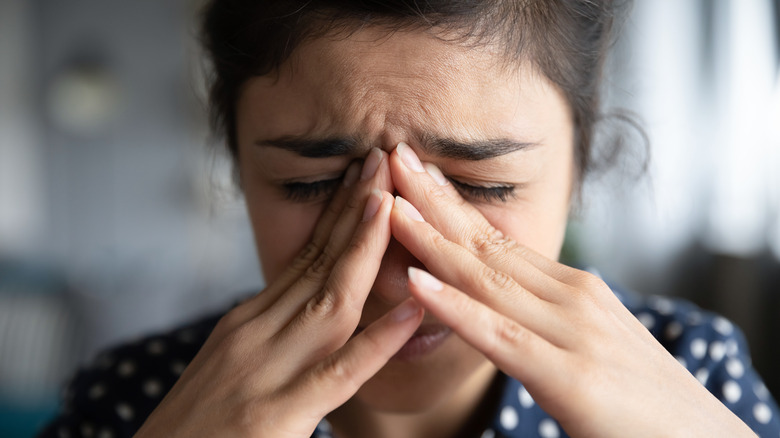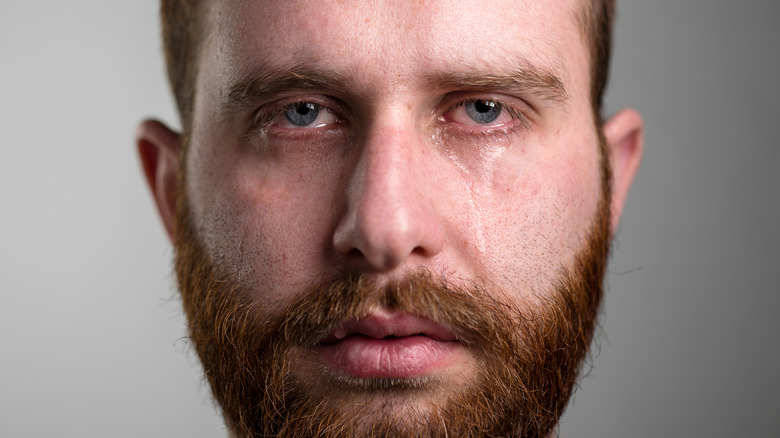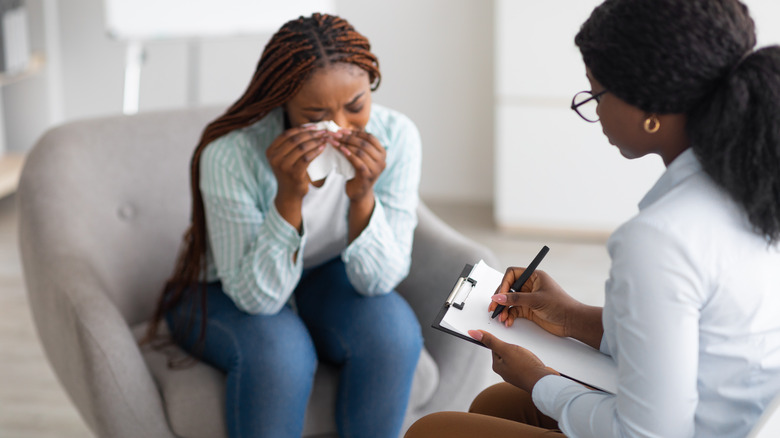Can Crying Relieve Anxiety?
For those who experience anxiety, coping with the emotion can come in many forms. Some people may seek support from a friend or loved one, while others may turn to deep breathing exercises or journaling. Expressing how one feels in the moments when anxiety sets in can help people move through the emotion instead of trying to stifle it, which can often worsen symptoms.
As per MedlinePlus, anxiety is characterized by intense feelings of dread, fear, or uneasiness, which can often prompt physical symptoms such as an increased heart rate, sweating, or muscle tension. When anxiety occurs consistently and impacts one's quality of life, these can be indications of a potential anxiety disorder, such as panic disorder or generalized anxiety disorder (GAD). While a bout of anxiety can be brought on by the occasional stressful circumstance, health experts believe that factors such as genetics, brain chemistry, and environment can also influence its development.
Anxiety can bring about different emotions in different people. For some people, it may prompt feelings of anger, while others may feel overwhelmed and compelled to cry. There is no right or wrong way to feel anxiety. In fact, expressing oneself through tears may have some mental health benefits to offer.
The three different types of tears we cry
Experts at Harvard Health Publishing explain that when we cry for different reasons, it releases different types of tears. Reflex tears and continuous tears are two types of tears that emerge as a response to physical stimuli, such as an irritant in the eye. Made up of almost entirely 100% water, these tears keep our eyes hydrated and clear of infection or debris. While these tears play an important role, emotional tears are known to release endorphins, oxytocin, and purge the body of stress hormones.
According to the NorthStar Transitions treatment center, emotional tears can also aid in pain reduction, self-soothing, and mood-boosting. Almost immediately, after a few minutes of crying, our parasympathetic nervous system is triggered, helping to relieve stress-induced stomach aches and feelings of restlessness. It turns out that the endorphins released while crying can reduce both emotional and physical pain sensations.
Crying as a coping strategy for anxiety
Mental health information and support resource, Mind, affirms that crying can be a beneficial means of coping with anxiety. Chief Executive of Mind Paul Farmer elaborates that "Many of us lead busy, stressful lives and sometimes it can feel like things are spiraling out of control. Although it might seem tempting to put on a brave face, it really is OK to cry." Experts at Harvard Health Publishing say this message is particularly important in helping eliminate the stigma associated with crying as weakness, particularly for men.
The next time you're feeling the urge to have a good cry, don't resist it. Releasing your tears may help ease anxiety in the moment.
If you or someone you know is struggling with mental health, please contact the Crisis Text Line by texting HOME to 741741, call the National Alliance on Mental Illness helpline at 1-800-950-NAMI (6264), or visit the National Institute of Mental Health website.



